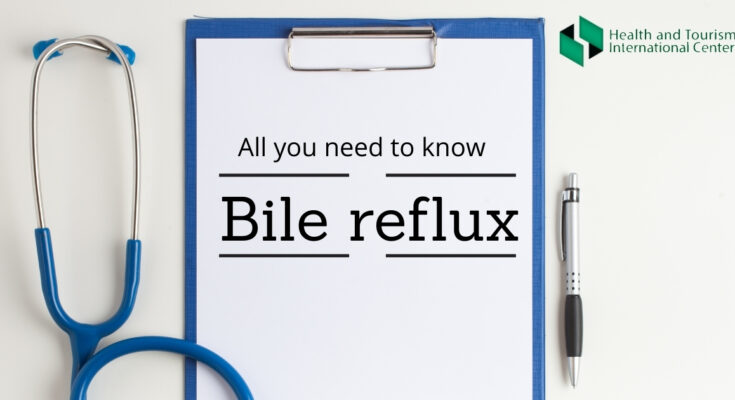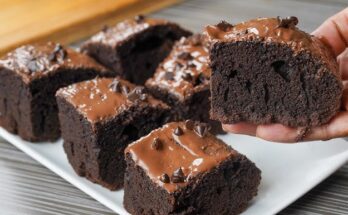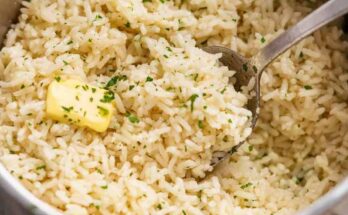Bile Reflux Symptoms: Bile reflux, often overshadowed by its counterpart, acid reflux, is a condition that can cause significant discomfort and health complications if left untreated.
This article delves into the symptoms, causes, and understanding of bile reflux, providing comprehensive insights for those seeking knowledge and solutions.
What is Bile Reflux?
Bile reflux, a less commonly discussed condition, occurs when bile — a digestive fluid produced in the liver — flows upward from your small intestine into your stomach and esophagus. This backwash of bile can cause significant discomfort and has various health implications.
Bile Reflux vs. Acid Reflux: Key Differences
While often confused with acid reflux, bile reflux has distinct characteristics. Acid reflux involves the backflow of stomach acids into the esophagus, often causing heartburn. Bile reflux, on the other hand, involves bile, not stomach acid, and can result in a persistent cough or sore throat, unintentional weight loss, and frequent heartburn.
By understanding these differences, individuals can better identify and seek appropriate treatment for these conditions. Bile reflux, though less common than acid reflux, requires medical attention to manage its symptoms and prevent complications.
Causes of Bile Reflux
Bile reflux, a condition distinct from acid reflux, arises when bile — a digestive liquid produced in your liver — backs up (refluxes) into your stomach and, in some cases, into the tube that connects your mouth and stomach (esophagus). Understanding the causes of bile reflux is crucial for effective management and treatment. Here, we delve into the various factors contributing to this condition.
1. Gallbladder Surgery
- Cholecystectomy: One of the most common causes of bile reflux is the removal of the gallbladder (cholecystectomy). This surgery disrupts the normal storage of bile, leading to increased bile flow into the stomach.
2. Gastrointestinal Surgery
- Weight Loss Surgeries: Surgeries like gastric bypass can lead to bile reflux.
- Peptic Ulcer Surgery: Procedures to treat ulcers can inadvertently result in bile reflux.
3. Peptic Ulcers
- H. pylori Infection: Helicobacter pylori, a bacterium causing ulcers, can also contribute to bile reflux.
- Long-term Ulcer History: Chronic peptic ulcers may weaken the pyloric valve, allowing bile to enter the stomach.
4. Malfunction of the Pyloric Valve
- Valve Dysfunction: If the pyloric valve between the stomach and small intestine doesn’t close properly, bile can seep back into the stomach.
5. Other Contributing Factors
- Obesity: Excess weight can increase the pressure on abdominal organs, contributing to bile reflux.
- Certain Medications: Some drugs can relax the lower esophageal sphincter, allowing bile to reflux into the esophagus.
- Diet and Lifestyle Choices: A diet high in fatty foods and certain lifestyle habits can exacerbate bile reflux.
Each of these causes contributes to bile reflux in unique ways, often disrupting the normal digestive process and leading to discomfort and potential complications. It’s essential to recognize these triggers to develop effective treatment plans, which may include lifestyle modifications, medications, or in some cases, surgery.
For a comprehensive understanding and management of bile reflux, it’s advisable to consult with healthcare professionals. Early diagnosis and intervention can significantly improve the quality of life for those affected by this condition.
Causes of Bile Reflux
Understanding the root causes of bile reflux is crucial in managing this condition effectively. Bile reflux, a condition where bile flows upward from your small intestine into your stomach and esophagus, can lead to discomfort and various health issues. Here, we delve into the various factors that contribute to the development of bile reflux.
1. Gastric Surgery Complications
One of the primary causes of bile reflux is complications arising from gastric surgery. Procedures like gastric bypass or gallbladder removal can disrupt the normal flow of bile, forcing it into the stomach instead of the small intestine. This altered pathway leads to the symptoms associated with bile reflux.
2. Peptic Ulcers
Peptic ulcers, especially those near the junction of the stomach and small intestine, can obstruct the passage of food. This obstruction can cause a build-up of gastric contents, including bile, which may then reflux into the stomach and esophagus.
3. Malfunction of the Pyloric Valve
The pyloric valve, situated between the stomach and small intestine, plays a pivotal role in controlling the flow of stomach contents. If this valve malfunctions or becomes weakened, it can allow bile to seep back into the stomach, leading to reflux.
4. Gastroesophageal Reflux Disease (GERD)
While GERD primarily involves the reflux of stomach acid, it can also contribute to or coexist with bile reflux. In some cases, the same factors that exacerbate GERD, such as a hiatal hernia, can also lead to bile reflux.
5. Other Contributing Factors
Other factors that may contribute to bile reflux include certain lifestyle habits and medical conditions. Obesity, high-fat diets, and excessive alcohol consumption can exacerbate this condition. Additionally, certain medications and stress can also play a role in triggering bile reflux.
Each of these causes contributes to bile reflux in different ways, affecting the normal digestive process and leading to the symptoms associated with this condition. Understanding these causes is vital in seeking appropriate treatment and making lifestyle adjustments to alleviate the discomfort caused by bile reflux.
Recognizing Bile Reflux Symptoms
Recognizing the symptoms of bile reflux is crucial for timely diagnosis and treatment.
Common Symptoms of Bile Reflux
- Persistent Heartburn: Unlike occasional heartburn caused by acid reflux, heartburn from bile reflux is more frequent and severe.
- Upper Abdominal Pain: A continuous or intermittent pain in the upper abdomen, often described as burning or gnawing.
- Nausea: A frequent feeling of sickness, which can be more pronounced in the morning or after meals.
- Vomiting Bile: In severe cases, vomiting a greenish-yellow substance (bile) may occur.
- Unintended Weight Loss: Due to discomfort and nausea, some may experience unintended weight loss.
- Cough or Hoarseness: Bile reflux can irritate the throat, leading to a persistent cough or hoarse voice.
Distinguishing Bile Reflux from Similar Disorders
Bile reflux shares symptoms with other gastrointestinal disorders like acid reflux and gastritis, making it challenging to diagnose based solely on symptoms. However, there are key differences:
- Acid Reflux: This commonly involves regurgitation of food or sour liquid, unlike bile reflux which may involve vomiting bile.
- Gastritis: While gastritis causes upper abdominal pain, it’s more often associated with bloating and stomach noises.
To accurately diagnose bile reflux, a physician may recommend tests such as esophagogastroduodenoscopy (EGD) or gastric emptying studies. If you suspect you have symptoms of bile reflux, it’s important to consult a healthcare professional for proper diagnosis and treatment.
Impact of Bile Reflux on Health
This condition can lead to a range of health complications, some of which are severe.
Potential Health Complications of Untreated Bile Reflux
- Esophageal Damage: Chronic exposure of the esophagus to bile can lead to inflammation (esophagitis), which may progress to esophageal ulcers or even esophageal cancer in severe cases. The constant irritation can also cause scar tissue, narrowing the esophagus and making swallowing difficult.
- Stomach Lining Irritation: Bile reflux can irritate the lining of the stomach, leading to gastritis. This condition can cause symptoms like stomach pain, nausea, and vomiting, and if persistent, it increases the risk of stomach ulcers and bleeding.
- Barrett’s Esophagus: Long-term bile reflux can lead to changes in the cells of the esophagus, known as Barrett’s esophagus, a condition that increases the risk of developing esophageal adenocarcinoma, a type of cancer.
Connection with Other Digestive Disorders
Bile reflux is often associated with other digestive system disorders, creating a complex interplay:
- Gastroesophageal Reflux Disease (GERD): Many individuals with bile reflux also have GERD. The presence of both conditions can exacerbate symptoms like heartburn and increase the risk of esophageal damage.
- Gallbladder Surgery Complications: People who have had their gallbladders removed are at a higher risk of developing bile reflux. The absence of a gallbladder can disrupt the regulation of bile flow, leading to reflux.
- Peptic Ulcers and Gastric Surgery: A history of peptic ulcers or gastric surgery can increase the risk of bile reflux. These conditions can alter the stomach and pyloric valve’s functioning, allowing bile to flow into the stomach.
However, bile reflux is a condition that warrants prompt medical attention due to its potential to cause serious health complications. Its close association with other digestive disorders highlights the need for comprehensive diagnosis and treatment. Awareness and understanding of bile reflux are crucial for timely intervention and prevention of long-term health issues.
Diagnosis of Bile Reflux
Early diagnosis is crucial for effective management and symptom relief. This section delves into the various diagnostic methods used by healthcare professionals to identify bile reflux, highlighting their significance in early detection and management.
Key Diagnostic Methods for Bile Reflux
- Esophagogastroduodenoscopy (EGD): EGD is a primary diagnostic tool where a flexible tube with a camera (endoscope) is used to view the lining of the esophagus, stomach, and upper part of the small intestine. This procedure helps in identifying inflammation or damage caused by bile reflux.
- Ambulatory Acid (pH) Probe Tests: These tests measure acid in the esophagus. A tube is inserted through the nose into the esophagus and positioned above the lower esophageal sphincter. It’s connected to a recorder that monitors acid levels over a 24-hour period. In bile reflux, the acid levels may be normal, but this test can rule out acid reflux, which often coexists with bile reflux.
- Bilitec Monitoring: This specialized test uses a probe to measure bile acids in the esophagus. It’s a more direct approach to detecting bile reflux but is less commonly used due to its invasive nature and limited availability.
- Gastric Emptying Studies: These studies assess how quickly food leaves the stomach. Slow gastric emptying can contribute to bile reflux. Patients consume a meal containing a radioactive substance, and a scanner tracks the rate at which the food exits the stomach.
- Blood Tests: While not directly diagnosing bile reflux, blood tests can rule out other conditions that might mimic bile reflux symptoms.
The Importance of Early Diagnosis
Early diagnosis of bile reflux is pivotal for several reasons:
- Preventing Complications: Untreated bile reflux can lead to severe complications, including esophageal damage and Barrett’s esophagus, a pre-cancerous condition.
- Symptom Management: Early diagnosis allows for timely intervention, which can significantly alleviate symptoms like heartburn, nausea, and vomiting.
- Treatment Planning: Identifying bile reflux early helps in developing a more effective and tailored treatment plan, including lifestyle changes, medications, or surgery.
However, recognizing bile reflux promptly through these diagnostic methods is essential. It not only aids in preventing complications but also ensures effective symptom management and treatment planning. If you’re experiencing symptoms suggestive of bile reflux, consult your healthcare provider for a proper evaluation and diagnosis.
Treatment and Management of Bile Reflux
Effective management of bile reflux hinges on a combination of medical treatments and lifestyle modifications.
1. Lifestyle Changes: A Cornerstone of Management
- Dietary Adjustments: The role of diet in managing bile reflux is crucial. Small, frequent meals can prevent overloading the stomach. Avoiding spicy, fatty, and acidic foods that exacerbate symptoms is recommended.
- Weight Management: Maintaining a healthy weight reduces pressure on the stomach, which can lessen bile reflux occurrences.
- Elevated Sleeping Position: Elevating the head while sleeping can help reduce nighttime symptoms by preventing bile from flowing back into the esophagus.
2. Medications: Alleviating Symptoms
- Proton Pump Inhibitors (PPIs): PPIs are often prescribed to reduce stomach acid, which can decrease irritation caused by bile in the stomach lining.
- Bile Acid Binders: These medications can help reduce the amount of bile that backs up into the stomach and esophagus.
- Prokinetics: These drugs help speed up stomach emptying, reducing the likelihood of bile reflux.
3. Surgical Options: When Medications Aren’t Enough
In severe cases where lifestyle changes and medications do not provide relief, surgery might be considered. Procedures like Roux-en-Y surgery can be effective in preventing bile reflux.
Key Takeaways
- Bile reflux management is a combination of dietary changes, weight management, and medication.
- Medications like PPIs and bile acid binders play a significant role in symptom control.
- Surgery is a last resort, typically considered only when other treatments fail.
Managing bile reflux effectively involves a comprehensive approach that includes lifestyle modifications and medical treatment. Consulting with a healthcare professional is essential for a tailored treatment plan.
Preventive Measures for Bile Reflux: Essential Tips and Lifestyle Modifications
Preventing bile reflux is essential for maintaining a healthy digestive system. Here are some practical tips and lifestyle modifications that can significantly help in preventing this condition.
1. Adopt a Healthy Diet:
Eat Smaller, More Frequent Meals: Large meals can increase pressure in your stomach, prompting bile reflux. Opt for smaller, more frequent meals throughout the day.
Avoid Trigger Foods: Spicy, fatty, and acidic foods can aggravate bile reflux. Identify and limit foods that trigger your symptoms.
Incorporate Alkaline Foods: Alkaline foods like bananas, melons, and cucumbers can help neutralize stomach acid, reducing bile reflux episodes.
2. Maintain a Healthy Weight:
Exercise Regularly: Regular physical activity helps in maintaining a healthy weight, which is crucial for reducing the pressure on your stomach and preventing reflux.
Avoid Rapid Weight Loss: Rapid weight loss can disturb your digestive system. Aim for a gradual and steady weight loss plan.
3. Alter Eating and Sleeping Habits:
Don’t Eat Before Bedtime: Eating close to bedtime can trigger bile reflux. Have your last meal at least 2-3 hours before you sleep.
Elevate Your Head While Sleeping: Raising the head of your bed by about 6-8 inches can help prevent bile from flowing back into the esophagus during sleep.
4. Limit Alcohol and Caffeine:
Reduce Alcohol Consumption: Alcohol can relax the valve between the stomach and esophagus, leading to reflux.
Cut Down on Caffeine: Caffeinated beverages can increase stomach acid and worsen bile reflux.
5. Stop Smoking:
Smoking weakens the lower esophageal sphincter, making you more susceptible to bile reflux. Quitting smoking can significantly reduce symptoms.
6. Manage Stress:
Practice Relaxation Techniques: Stress can exacerbate bile reflux. Techniques like meditation, yoga, and deep breathing can help manage stress levels.
By implementing these lifestyle changes and preventive measures, you can significantly reduce the risk and manage the symptoms of bile reflux. Remember, a healthy lifestyle is not just about preventing specific conditions like bile reflux; it’s about enhancing your overall well-being.
FAQs on Bile Reflux: Symptoms and Causes
What is Bile Reflux?
Bile reflux occurs when bile — a digestive liquid produced in your liver — backs up (refluxes) into your stomach and, in some cases, into the tube that connects your mouth and stomach (esophagus).
What are the Symptoms of Bile Reflux?
Common symptoms of bile reflux include:
- Upper abdominal pain that may be severe
- Frequent heartburn — a burning sensation in your chest that sometimes spreads to your throat, along with a sour taste in your mouth
- Nausea
- Vomiting bile, a substance that is greenish-yellow in color
- Occasional cough or hoarseness
- Unintended weight loss
What Causes Bile Reflux?
Bile reflux can be caused by several conditions, including:
- Surgery complications: Gallbladder removal and gastric surgeries can lead to bile reflux.
- Peptic ulcers: These can block the pyloric valve, leading to bile reflux.
- Obesity: Excess weight increases the risk of bile reflux.
- Other factors: Smoking, alcohol consumption, and certain foods can aggravate bile reflux.
How is Bile Reflux Different from Acid Reflux?
While acid reflux involves the backflow of stomach acid into the esophagus, bile reflux involves bile — a digestive fluid from the liver. It’s possible to have both conditions simultaneously.
Can Bile Reflux Lead to Complications?
If not treated, bile reflux can lead to complications like esophagitis, Barrett’s esophagus, and possibly esophageal cancer.
When Should I See a Doctor?
Consult a healthcare provider if you experience frequent symptoms of bile reflux, such as severe abdominal pain, heartburn, or vomiting bile.
Conclusion:
In summary, bile reflux is a medical condition characterized by the backflow of bile into the stomach, leading to various discomforts and potential complications. Key symptoms include persistent heartburn, nausea, vomiting a greenish-yellow substance (bile), and occasionally, severe pain in the upper abdomen. The primary causes of bile reflux encompass a range of factors, from surgery complications, such as gallbladder removal, to peptic ulcers and certain lifestyle choices.
It’s crucial to recognize that these symptoms can significantly impact your quality of life and, in some cases, may signal more severe health issues. Therefore, if you’re experiencing persistent symptoms of bile reflux, it’s essential to consult with a healthcare professional. They can provide a proper diagnosis and recommend an effective treatment plan tailored to your specific condition.
Remember, addressing symptoms early and seeking medical advice is key to managing bile reflux effectively and maintaining your overall health and well-being.



